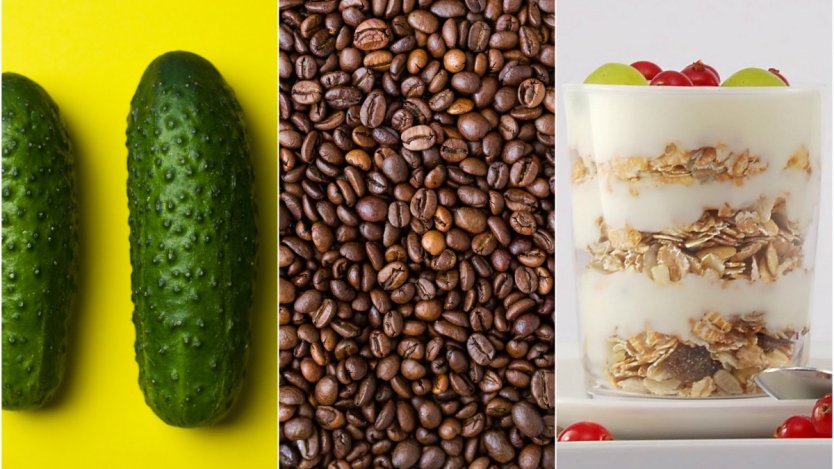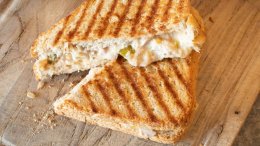Following what Foreign Affairs Minister Chrystia Freeland has called an “astonishing” decision by Donald Trump’s US administration to impose heavy tariffs on Canadian aluminum and steel, the Canadian government has retaliated by creating a schedule of its own countermeasures, imposing taxes on goods from iron and steel to ketchup, yogurt and strawberry jam, which currently flow freely across the border. The tariffs could be implemented on July 1st, Canada Day.
While some of the goods and commodities listed, such as jam, yogurt, mustard and maple syrup, seem random and even absurd; there is a method to the madness.
The tariffs are designed to put pressure on key politicians, as described by a CBC article. For example, the restriction on item 2001.10: “cucumbers and gherkins” is not designed to actually take our pickles away, but to stimulate Paul Ryan, the Republican Speaker of the U.S. House of Representatives, who represents the district in Wisconsin where pickles are made. In fact, Ryan has already made an official statement to say he’s against the tariffs.
If you peel back the story, there’s some sour history when it comes to gherkins. According to Maclean’s, Bick’s moved its operations from Dunville and Delhi, Ontario to Wisconsin in 2012. The once Canadian company, established in 1944, had already changed hands a couple of times, having being sold to Robin Hood in 1963 and Smucker’s in 2004. Perhaps Ohio-based Smuckers is another target: strawberry jam, or item 2007.99.10.
It’s pretty sticky politics, but what is the significance for those of us who love to eat? One effect is that people might start looking at labels more closely, and begin using Canadian alternatives to their favourite U.S. products.
But shopping patriotically for prepared foods is easier said than done. On a recent trip to the grocery store, I tried my best to decipher which mayonnaise was really Canadian (I’m still not sure), and what the little maple leaf symbol on the Campbell’s soup means. According to the Government of Canada guidelines, the little maple leaf probably implies that it is a “product of Canada,” meaning most of the ingredients are Canadian, as opposed to the designation “Made in Canada,” meaning that the product was put together in Canada. Either way, it all feels pretty murky, and it left me curious as to where some of my prepared foods are coming from.
If you want to eat locally while the politicians fight it out, there are many alternatives to some of the U.S. products on the list. In addition to Canadian store brands, here are a few to look into.
2001.10 Cucumbers and Gherkins
The shelves in your grocery store are probably lined with crunchy Wisconsin Bick’s but there are some good alternatives. In my local store, I found some really nice, small German gherkins, produced by Kuhne, as well as some no-name pickles imported from India. For true Canadian flavour, try Strubs, a Canadian pickle company that claims to use “Canadian cucumbers first.”
1806.32 Other chocolate, in blocks, slabs or bars: not filled
The restriction on chocolate may be a direct hit to Pennsylvania, home of Hershey’s chocolate and a major steel and aluminum producing state. Hershey’s chocolate is already worried, since they wrap their kisses in aluminum, which is set to get pricier. Why not just give the kisses a miss, and indulge in a bar from Peace by Chocolate, a Syrian family-run business in Antigonish, Nova Scotia, or other bean-to-bar businesses in your province?
2103.90 Mayonnaise, salad dressing, mixed condiments and mixed seasonings, other sauces
This category of prepared food is easy to substitute. Make your own delicious salad dressings from olive oil, balsamic vinegar and fresh herbs grown on your very own Canadian windowsill. Buy a locally made mayo, like this mayonnaise from Neal brothers, made with organic free-range Canadian eggs.
0403.10 Yogurt
Astro yogurt uses milk sourced from Canadian farms, milk that promises not to contain artificial hormones or antibiotics. Another bonus: Astro’s parent company, Parmalat, is a founding sponsor of the kids help phone. Liberte, from Montreal, is another great alternative.
2103.20 Tomato ketchup and other tomato sauces
Many Canadians have already switched allegiance for their favourite red sauce, choosing 100 per cent Canadian French’s over Heinz, which pulled its operations from Leamington, Ontario in 2014. President’s Choice ketchup is also 100 per cent Canadian tomatoes, Canadian-made.
1901.21 Coffee, roasted; not decaffeinated
Coffee isn’t just important to your morning, it’s important to economics, with unroasted or “green” coffee being one of the most traded commodities in the world. Something for Canadian consumers to consider is that most beans are grown in developing countries, roasted in the U.S. and then sold under well-known brands. If this is the brew you’re currently drinking, why not switch it up for a cup of Kicking Horse, 49th Parallel Coffee, Pilot Coffee Roasters, or any other Canadian company that values fair trade.
1602.32.11 Prepared meals: of spent fowl; specially defined mixtures
“Spent fowl”, in case you’re not familiar with the term, means chickens that are no longer productive, and are destined for slaughter. Hens that were used to lay eggs, and “old roosters” fall into this category. After consulting the Canadian Border Services Agency document, my best inference is that item number 1602.3211 refers to some kind of TV dinner that contains chicken nuggets. Yuck. Probably best not to eat this stuff at all.













